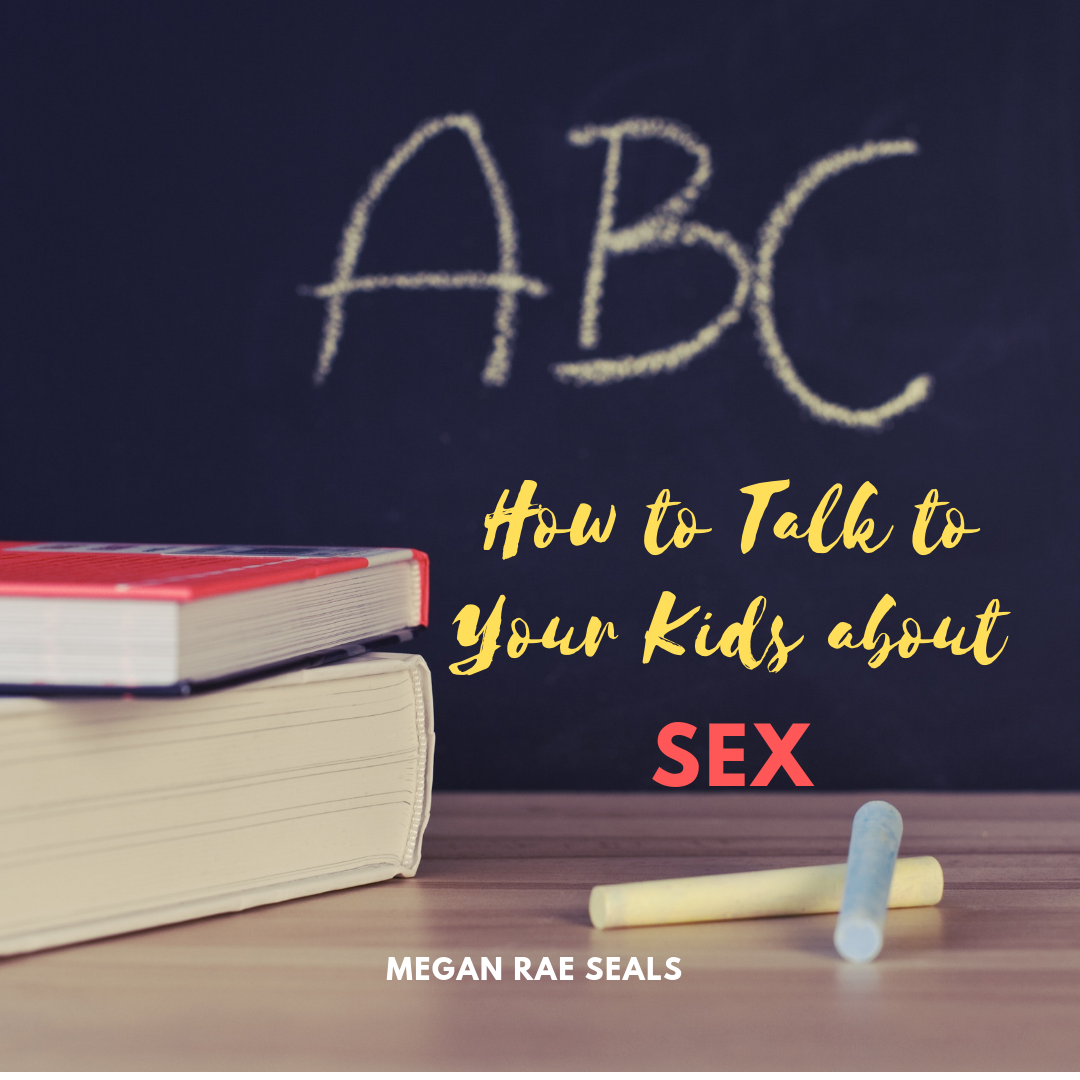At the ripe old age of twenty-two, I found myself pulled out of my shiny new classroom for a day of Family Life Education (FLE) training with dozens of other new hires in Fairfax County. I have to admit that when I chose a career in elementary education it never occurred to me that along with stem-and-leaf plots, I’d also be tasked with guiding tomorrow’s youth through the treacherous week known as FLE. This training included reciting body parts out loud until we stopped giggling, fielding obscene and downright confusing questions that might be posed and perusing the lovely script (that included lines like, “They whip their tiny tails and swim up to the egg.”) from which we would be forced to read for five days out of the year. They then directed us to the very long and extensive “Do Not Discuss” list. Due to differing beliefs, we were forced to avoid some seriously important conversations in the school system, including birth control, abortion, homosexuality, rape and the list goes on and on. After a whopping six hours of training, I was pushed out the door with a binder filled with the script, a list of VHS tapes to find in the library (yes, you read this correctly—VHS tapes in 2007), and a CD preloaded with a PowerPoint presentation.
Female reproductive organs, as drawn by a sixth grade male.
As the dreaded week approached, I obsessively read through the “Do Not Discuss” list, printed HIV handouts and practiced saying anatomy parts in a mirror with a straight face. Day one was easy: puberty.
Day two: the opposite gender. Mm…okay. Day three: reproduction. Here we go. After watching a crackly VHS tape starring a teen with an original 90210 shirt (Did I mention this was in 2007?), we read our script and collected the index cards on which students wrote their questions. I gathered them all and began sorting. “What is sexual intercourse?” Wait, I thought we just covered that. I looked through the script and realized that beyond the cartoon dog birth video, there was actually only half of a sentence that explained the whole “sex” thing. It was so vague that a grown adult might get confused. Great, I guess I will have to read that sentence again tomorrow and hope they get it since the script is golden. However, as I continued through the pile, I started to come across many of the “Do Not Discuss” questions.
“What do we do with these?” I asked my teammate.
“At the end of class, we tell students that any questions that were not answered are topics they should talk to their parents about.” Interesting.
I survived my first year of FLE unscathed. Surprisingly, over time I even found myself looking forward to this week. Was it because of the sheer unpredictability it brought? Maybe. But mostly I enjoyed it because it was just so real. Never have I been able to figure out when anyone uses that beloved stem-and-leaf plot, but puberty, reproduction, refusal skills, STDs? These topics would be very relevant to these kids, and very soon.
However, I started to feel conflicted due to how binding the script was proving to be. Also, the yearly budget crisis left no money for updating materials, which meant our curriculum was not keeping up with the digital world that was creeping its way into our culture. The index cards started to include some disturbing content that we couldn’t even address, and it became apparent that with no adult to talk to, kids were searching the all-knowing Google for answers.
It might sound as though I am bashing sex education programs, but that is not the point of this post. Do I believe you should opt your kids out of FLE in public school? Absolutely not. But parents, please understand that if you are relying on the school system to educate your children about sex, you are doing them a disservice. Truly I tell you, I intercepted a conversation between two boys who thought using two condoms was a good idea. When you leave children with no adult for guidance, they will ask someone else, and it is like the blind leading the blind. Furthermore, the abstinence-only education approach has led students to “sexual activities” that won’t get you pregnant but can lead kids down a road toward STDs or situations they are in no way emotionally ready to handle.
Also, teachers cannot teach sexual ethics in public schools, and our strictly biological approach doesn’t prepare students for the devastation that can come when a photo that was meant for a “forever” boyfriend ends up being distributed to half the school. Parents, our children are growing up in a hyper-sexualized world that has perverted something God intended to be beautiful and sacred. They are in a space where impulsive acts can haunt them forever. A world in which sexual assault is so prevalent on college campuses that some studies suggest as many as one in four women will be victims.
How can we as Christians navigate these treacherous waters? You might be tempted to shelter your kids, opt them out of sex education and cut off all internet connections in your house, but the reality is, this is not the life Christ has called us to live. We have to teach our children how to be in the world, but not of the world, yet also do so in such a way that will not scare them from having a healthy view of sex as an adult. This is no small task.
The secret is this—you have to talk to them. A lot. Talk to your kids about sex when they are young so that when things start to get real, they feel as though you will be okay with the topic. I know—it’s awkward. As silly as it sounds, practice with your spouse or a friend so that you don’t actually register undesirable emotion on your face when little Johnny asks you something absurd in the pet food aisle of Target (seriously, I don’t understand a kid’s train of thought either). Kids will watch your reaction to gauge whether this is something they can trust you with, and any glimmer of a negative reaction might shut them down.
Designate a time or space that is safe for your children to ask difficult questions. Try the car. It’s amazing how much more they will open up to you when you aren’t face to face. Alternatively, you could try something a dear colleague of mine did, in which she and her teen children had “Sexual Ethics Sunday.” If you are truly terrified, try the school approach and have them write down any questions they have. That gives you a chance to giggle in a closet before you compose yourself and figure out how to answer them. (Plus as an added bonus, you can whip that card out at family dinner when they are adults as retribution for how annoying they were as teenagers.) For the non-verbose, you could even start a journal with your child. We set this up between parents and their fifth graders, and it was amazing to see the conversations that unfolded in writing. Also, try not to worry too much about whether dad is talking to the boys and mom talking to the girls. I taught FLE to fifth and sixth grade boys for years, and everyone survived. In fact, one could argue they might even benefit from the cross gender perspective.
Please, teach your daughters a firm and steady “no,” and let them practice setting healthy boundaries at home. Help boys understand how to stand up to herd mentality that can take over and influence seemingly reasonable humans into making terrible decisions that hurt others. Teach your children that pornography is not realistic, nor is it emulating a respectful and caring sexual relationship.
You might consider enlisting some trusted friends or relatives that can also engage in appropriate discussions with your children, because, as hard as it is to believe when they are small and cuddly, there will come a day when you might not be the person they want to talk to about their dark spaces. You could even try looking to the Bible for some guidance. Song of Solomon—am I right?
Talking about sex is important. Year after year I watched kids struggle with questions that I could not answer for them, and several said they just didn’t know how to ask their parents. Help bridge that gap. We live in a broken world with little to no sexual ethics, so it is up to us as a Christian community to help shed a little light on this confusing and complicated topic for our children.



